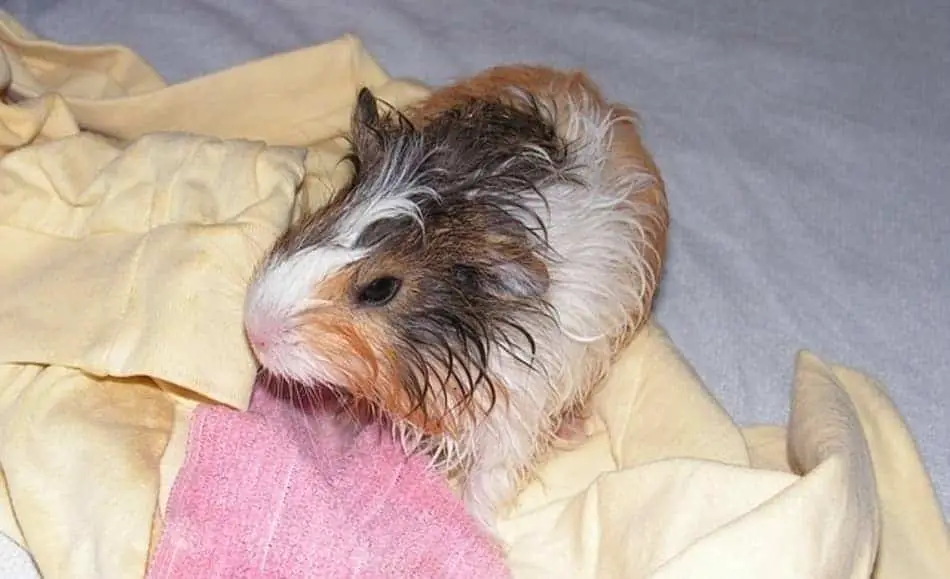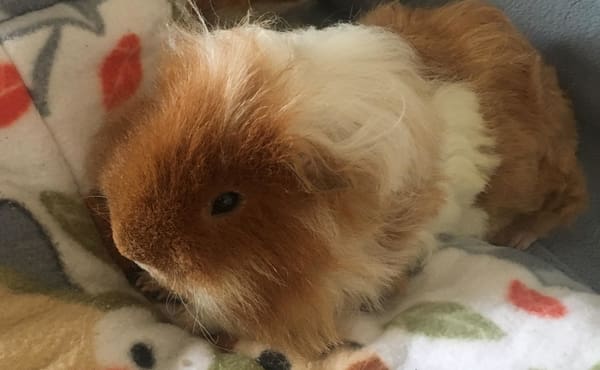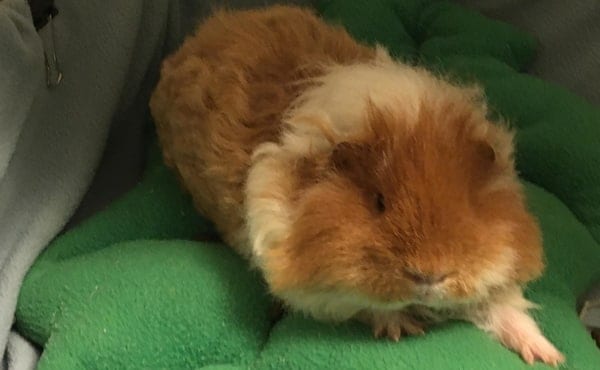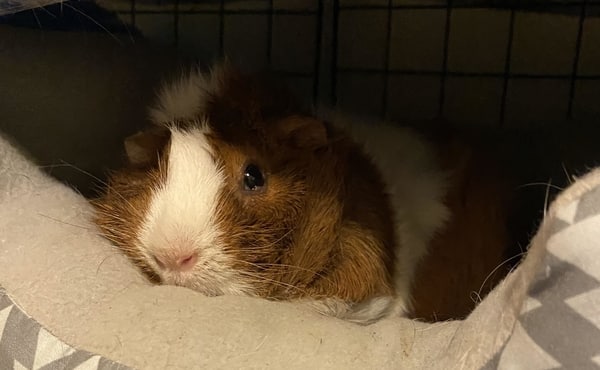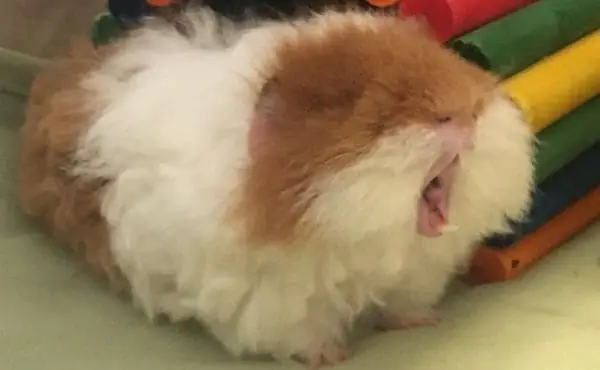Guinea pigs are funny and interesting little characters for anyone who shares their home with them. They are playful and fuzzy and have their own way of communicating with us. Sometimes, however, that communication can be vague, like vibrations, so we must dig a little deeper.
So, why is my guinea pig vibrating after a bath? The most likely reason in this scenario is that your guinea pig is cold, but it could also be frightened or sick. In some cases, it may even boil down to their individual personality traits.
This article will discuss cold vibrating, vibrating due to stress or fear, as well as illness and personal preference.
Is It Cold in Here?
Guinea pig communication is highly contextual, which can make it difficult to determine why your little pal is doing something, especially vibrating. Vibrating is a body language cue guinea pigs use frequently to display any number of feelings, both positive and negative.
Learning guinea pig language is important for people who share their homes with these little balls of fluff due to these nuances. Further, as with many interactions, contextual communication is all about circumstances.
In this case, for example, if your guinea pig vibrates after having a bath, chances are it is simply cold. As a rule, guinea pigs do not need baths often, as they are quite good at keeping themselves clean. Additionally, like many other rodents and small mammals, guinea pigs are not well-suited to extreme cold or heat.
Though they hail from South America and inhabit a broad range of habitats—mountainous grasslands, forests, savannah, and even coastal and island ranges—they are crepuscular (meaning most active at dawn and dusk) and are burrowing animals.
This means their underground dwellings and activity patterns serve as a buffer to extreme temperatures. All these things together suggest the time after a bath can prove to be a little too chilly and somewhat stressful for many guinea pigs.
Cold is among the most common reasons for vibrating in guinea pigs—small bodies become cold more easily, after all. Listen for rapid, clipped vocalizations to confirm your pal is cold, as these sounds sometimes accompany shivering in guinea pigs.
As mentioned earlier, guinea pigs live underground which is largely how they regulate body temperature, either seeking the coolness of their tunnels during the summer heat or building cozy nests in an underground room during winter cold snaps. They do, however, use their coats, ears, and like us, shivering, to maintain temperature balance in their little bodies on their own.
Because of how easily your little piggie can get cold, shaking, shivering, or vibrating following a bath is quite common. So, while it is not necessarily cause for immediate concern, get them dry and warm as soon as possible.
Use a soft towel and a blow dryer set on low heat, keep the nozzle moving, especially near the ears so as not to burn your pal, to dry them completely after the bath. It is typically not a good idea to put your guinea pig back in their enclosure still damp.
In general, the ideal temperature range for a guinea pig is between 65- and 75-degrees Fahrenheit, so take extra care to ensure the room in which you bathe your pig is nice and warm. Finally, remember that guinea pigs do not need water baths very often—usually a couple times a year, at most. In fact, if they are bathed in water and soap too much it can harm their skin and coats.
If you find that your guinea pig is often dirty, you may need to clean its enclosure more often. If your piggie is often smelly, there could be a potential illness to address, which we will discuss shortly. Make sure your pal is warm and dry after bath and a little shivering will not harm anything.
If you do not believe cold is the reason for your guinea pig’s vibrations, it could be stress or fear.
Anxious and Scared
Guinea pigs are prey animals, which means they are hunted by various predators in the wild in their given habitats. Because of this, guinea pigs are instinctively always on alert, their sharp senses ready to pick up any noise or movement that could potentially mean they are about to become someone’s meal.
Living that way in the wild has understandably made guinea pigs, like most other small mammals, quite anxious creatures in general. Therefore, loud or sudden noises, large objects or creatures, unfamiliar environments, new sights, smells, sounds, etc., can all elicit stress and/or fear responses for our tiny domestic friends.
Naturally, this can make it difficult to pin down what could be causing these feelings.
If you are certain your guinea pig is not cold, or perhaps think there may be another layer to its vibrating, your companion could be feeling stress or fear related to bath time itself or something in the environment during the bath.
As we already discussed, guinea pigs should not need water baths terribly often, and it probably goes without saying our housebound piggies’ wild cousins are not taking many baths either. Because of this, taking a bath can be a generally stressful event for many guinea pigs.
Some of course may enjoy it, as all piggies have their own unique personalities, but for most it is unfamiliar and uncomfortable. Fortunately, your pal will use its special, contextual guinea pig language to tell you it is feeling stressed out. To determine if stress is the driver behind your pal’s shaking, listen for rapid, clipped vocalizations (not unlike with cold shaking) and look for these other cues:
- Hunched posture
- Reluctance to move or be handled
- Circling
- Visible nervousness or irritability
- Baring or chattering teeth
- Head tossing
This list is not all-inclusive, but does apply to both stress and fear reactions, particularly in an unfamiliar environment where your pal does not have the luxury of hiding away in a home or its bedding.
If bath time itself is not what has your piggie anxious, evaluate the environment in which you are giving the bath. First and foremost, as mentioned above, ensure the room is the right temperature, then ask yourself some of the following questions: Are other animals such as dogs or cats frequently allowed in this room?
Even if they are not present during the bath, their scent likely would be enough to cause stress and/or fear reactions in your guinea pig. Are loud or particularly rambunctious children partaking in bath time? If so, teach them that being calm and gentle are good for the guinea pig, and that their pet relies on them to feel safe. Is the environment itself new or scary to your pal?
If the room has especially bright lights, prolonged noise, or loud, sudden noises, it would be wise to consider another area of the home for the next bath, as these things are scary to little guinea pigs.
If you are aware of potential stressors for your pal, and stay vigilant in your efforts to alleviate them, all will be well for both you and your companion before you know it.
Aside from cold and stress or fear, illness may be another source of your friend’s vibrating habit.
Under the Weather
While guinea pigs are fairly hardy little creatures, they are susceptible to certain illnesses, as are we all. Among other things, vibrating or shaking can sometimes indicate an illness.
Therefore, just like with cold or stress and fear, it is important for you as a guinea pig parent to be aware of your companion’s contextual communication so you can nip possible illness in the bud.
Among the most common ailments in guinea pigs are respiratory infections. There are several different bacteria that cause these infections in our little pals, and unfortunately, they can be asymptomatically carried quite easily.
Further, what might be a mild cold in a human is usually quite serious for such a small creature, and respiratory infections often develop into pneumonia for guinea pigs if not treated quickly. If your pal’s vibrations or shaking are out of character, look out for eye or nasal discharge, sneezing, and/or difficulty breathing.
If you notice these things, schedule a visit with your veterinarian right away. They will be able to quickly treat your pal so they can go back to enjoying playtime and treats.
Another common ailment that could cause vibrating or shaking in your guinea pig is diarrhea. The condition itself may not bring on vibrating, however, some of the symptoms may. Aside from a visible change in stool, your guinea pig may have a decreased appetite, painful gas, dehydration, weight loss, and low body temperature.
These last two symptoms might be what causes your friend to shake—less body fat and lower temperatures lead to shivering. If you suspect diarrhea, try to push water intake while you schedule a trip to the veterinarian, who again, will save the day.
A few other conditions to consider when evaluating your pal’s vibrating are parasites and seizures. Parasites like fleas and lice, aside from the obvious itching, might also result in vibrating or head shaking. Flea and lice eggs or ‘nits,’ adult fleas and lice, and their feces can be spotted with the naked eye.
Mites, however, are more difficult to spot and tend to be more common in guinea pigs. Mite infestations can be identified by shaking, crusty or raw skin, and itching so intense that seizures may develop. It might be tempting to bathe your pal if you think they are suffering from parasites, but this may make the issue worse, so—you guessed it—it is time to go to the vet.
Speaking of seizures, whether driven by a parasitic infestation or otherwise, vibrating can sometimes be a leading symptom for guinea pigs, along with twitching, painful squeaking, or tilting its head.
If you suspect a seizure, get your guinea pig to vet right away so they can diagnose the cause and prescribe treatment as needed. Seizures can be quite serious for guinea pigs but with intervention and treatment your pal will be just fine.
Outside of the topics we have already discussed, one (or two) more things that could be happening when your companion shakes after bath time: it either loves or very much dislikes the bath.
Mood Swings
If your guinea pig vibrates after getting a bath and you do not suspect chills, stress, or illness are the culprits, your piggie might be using the special contextual communication skills we keep talking about to tell you one of two things: I loved that bath, or, I hated that bath.
As with any of our other scenarios, context and knowing your pal is key. If your vibrating piggie is also purring, rubbing its nose on you or objects around it, squealing, or “popcorning,” otherwise known as literally jumping for joy—it is probably excited about its bath!
Conversely, if your pal is growling deeply, groaning, or puffing out its coat, it is probably telling you not to do that again. Either way, your piggie is talking to you and it is your job to listen! Personality preferences aside, if your pal did hate the bath, good news is it will not need another one for a while and this temporary mood swing is no reason to worry.
Conclusion
If your guinea pig vibrates after getting a bath, chances are it is just a little chilly. This is not an immediate cause for concern, just get it dry and warm as soon as possible. Additionally, if bath time or the room you bathe your pig in is stressful, your furry friend may simply be anxious or fearful, so consider fewer baths or a new area for bathing.
Illness may also be driving this behavior, so be on the lookout for certain symptoms and always be ready to make a call to your veterinarian. Finally, your guinea pig may be trying to tell you one of two very different things: That bath was great, or that bath was terrible.
In either case, there is no reason for concern. Pay attention to your guinea pig’s body language cues and other signs it gives you, as this is its way of talking to you, and you will always have a happy, healthy piggie.

